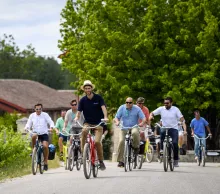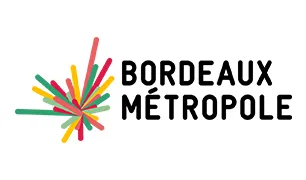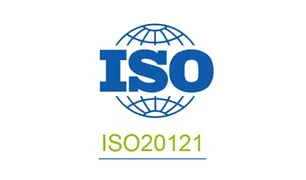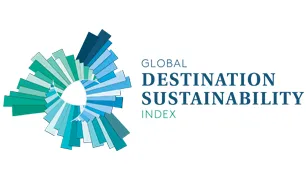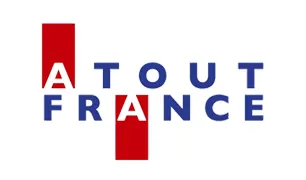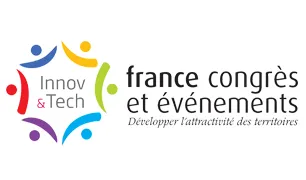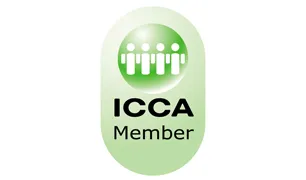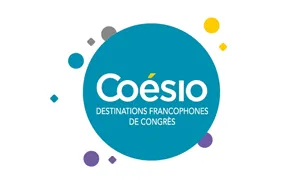
Labels, certifications and standards for sustainable events
Do you want to organise your event in an eco-responsible way but don't know who to call on?
It's not always easy to know which professionals are commited or to find your way through the many labels, certifications and standards. Here's what you need to know:
Labels, certifications, standards, what are they all about?
Label: Objective guarantee of compliance with the characteristics set out in a set of standards or specifications. May come from a public or private body. Labels therefore do not all have the same value and may be less regulated than certification.
Certification: Procedure whereby an approved external body guarantees that a product or service meets the requirements of a standard. It is awarded by an external certification body.
Standard: Reference document approved by a recognised standards institute such as ISO (International Organisation for Standardisation). A standard is not a regulation and is not mandatory. It is a frame of reference designed to provide guidelines. ISO standards can be applied to any type of company, service, or product.
ISO STANDARDS: AN INTERNATIONAL REFERENCE
- ISO 20121: this international standard confirms a responsible management system applied to the event industry. It provides guidelines to help professionals reduce their negative social, environmental, and economic impacts.
- ISO 14001: it applies to environmental management. It involves that the company constantly improves its environmental performance and reduces its negative impacts on the environment.
- ISO 26000: this standard guides companies in their CSR approach. It takes into account contribution to sustainable development, health and safety of society, consideration of stakeholders, respect of standards and laws, at all levels of the company.
LABELS AND CERTIFICATIONS
ACCOMMODATION
- Clef Verte (Green Key): thanks to this certification, you can stay in an establishment that is mindful of its environmental impact and social responsibility. This involves, for example, careful management of energy, water and waste, and a responsible purchasing policy.
- European ecolabel: certified tourist accommodation offers a service that respects the environment and human health at every stage of the service chain (from raw materials to manufacturing and use).
- Affichage Environnemental (Environmental labelling): this consists of measuring the environmental impact of an overnight stay using 4 environmental indicators: impact on the climate, water consumption, consumption of non-renewable resources and the proportion of organic or eco-labelled products in the establishment's supplies.
RESTAURANTS
- Ecotable: this certification identifies three levels of commitments for eco-responsible restaurants. Restaurants with the Ecotable label are committed to offering vegetarian options, recycling waste and sourcing local and bio-sourced products.
- Green Food: this label is awarded to committed restaurants that use local organic produce, respect cleaning products, pay attention to their energy consumption and offer veggie options. Le Prince Noir is the first Michelin-starred restaurant in France obtaining this label. It is in Bordeaux!
- FiG: FiG-labelled restaurants guarantee gourmet dining with a minimal carbon footprint! On the menu: organic and local products, a focus on plants, the fight against food waste, waste avoided and recycled!
VINEYARDS
- Haute Valeur Environnementale: this certification awarded to wine châteaux guarantees that the agricultural practices implemented throughout the estate preserve ecosystems and limit pressure on the environment (soil, water, biodiversity, etc.).
- Terra Vitis: Terra Vitis certification relies on the three pillars of sustainable development that are economy, social and environment. It measures the wine properties'impact on earth, on their employees, the neighbours and the consumers.
- Demeter: the Demeter label is attributed to biodynamic properties, i.e those considering the wine exploitation as a living being. This certification pays close attention to the soils and to a production attached to the terroir.
- Biodyvin: Demeter's cousin, this label also certifies biodynamic cultivation, paying particular attention to the balance of ecosystems, viticulture and vinification techniques.
- Agriculture Biologique (Organic Agriculture): wines bearing the French AB label must respect both organic vine-growing and organic winemaking. Organic farming excludes the use of synthetic substances (pesticides, synthetic fertilisers, genetically modified organisms, etc.)
- Bordeaux Cultivons Demain: a label dedicated to the CSR commitments of wine châteaux. The châteaux are committed to preserving the environment and bringing their terroir to life. It is based on the ISO 26000 standard, the international benchmark for CSR.
FOR TRAVEL AGENCIES, TOUR OPERATORS ANS ACTIVITY PROVIDERS
- Travelife: dedicated to responsible tour operators and travel agencies seeking to improve their social and environmental impact. Eligibility criteria include energy consumption, greenhouse gas emissions, business ethics, human rights and many others.
- LUCIE: derived from the ISO 26000 standard, it rewards companies with strong CSR actions, with 3 levels of commitment. LUCIE companies pay close attention to respect for human rights, the environment, local development, etc.
- Engagé RSE: LUCIE's niece, Engagé RSE assesses companies' CSR actions with 3 levels of maturity and is also based on the ISO 26000 standard.
- EnVol: based on the ISO 14001 standard, this label rewards companies that have implemented an environmental management approach throughout the life cycle of their products and services.
FOR VISITOR SITES
- NF Environnement: guarantees the reduction of the environmental impact of visitor sites (energy, water, waste, general management, responsible products and purchasing).
- Divetissement durable (Sustainable entertainnment): sites awarded the Sustainable Entertainment label implement a range of initiatives in terms of social responsibility, such as responsible management of green spaces and the shop, raising awareness among employees and customers, accessibility, and eco-design of facilities. The label has 3 levels of commitment.
ENTERTAINMENT COMPANIES AND AUDIOVISUAL SECTOR
- Prestadd: Prestadd is both a label and a CSR tool helping entertainment and event companies. It guides them in their sustainable development approach (energy savings, responsible purchases or HR policy).
- Numérique responsable (Responsible digital): It's all in the name! Labelled companies have a responsible digital approach. Particular attention is paid to the responsible management of hardware, data, websites, and accessibility.
DON'T FORGET ACCESSIBILITY AND INCLUSION MEASURES!
- Tourism & Handicap: this government mark attests to the professional's commitment to providing a welcome adapted to people with disabilities. It distinguishes between the 4 main types of disability: motor, visual, hearing, and mental. Find out more about accredited or adapted venues.
- Bordeaux Solid'air: a Bordeaux-based group working to integrate people in precarious situations through tourism and culture.


